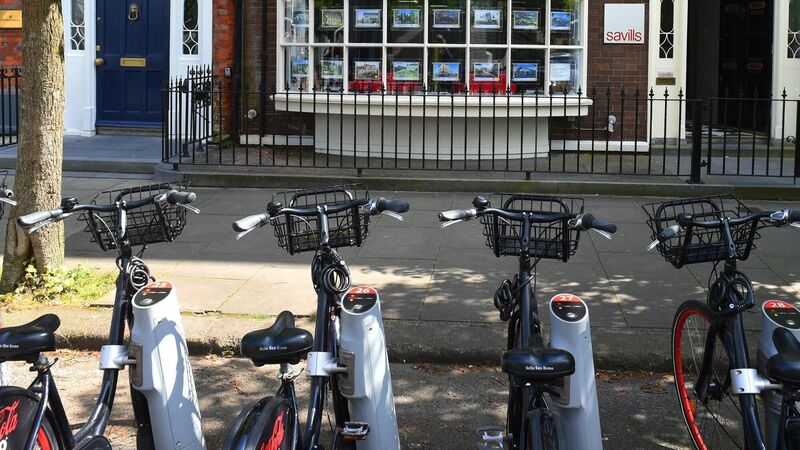Say goodbye to Coke bikes in Cork City as we know them

The Coke bikes on South Mall in Cork City. Picture: Larry Cummins
Coke bikes, Coke Zero bikes, TfI bikes, call them what you like, but they are on borrowed time. Minister Darragh O’Brien announced this summer that the TfI Regional Bike Share Scheme that operates in Cork, Limerick, Galway, and Waterford will be wound up by the end of this year.
Launched over a decade ago, the scheme was a big hit in Cork with almost 300,000 trips taken on the bikes in 2016. It’s easy to understand why a public bike share scheme became so popular on Leeside: a compact city centre without a central public transport hub and key trip destinations like a university and hospitals all within a 15-minute cycle.
















